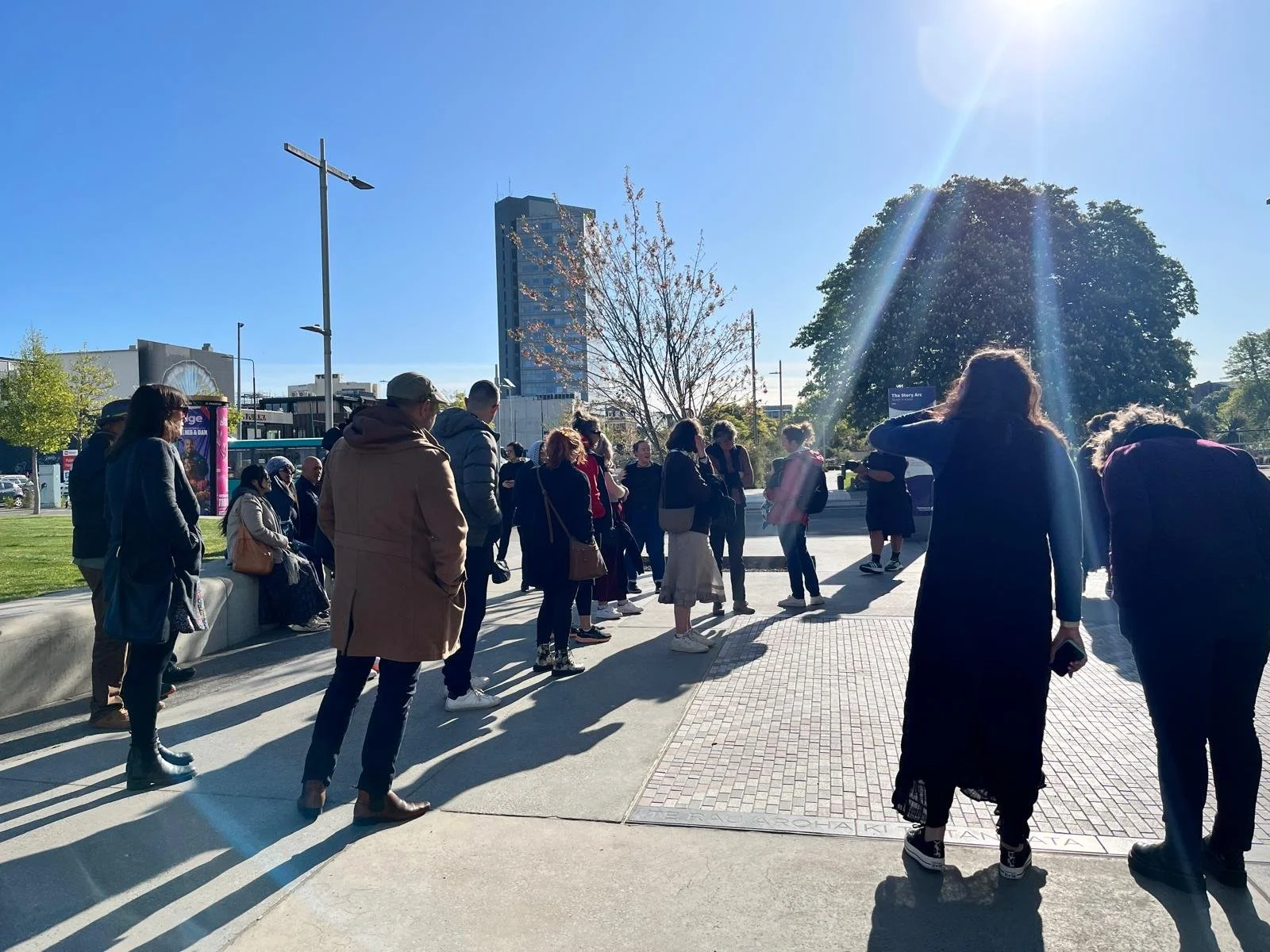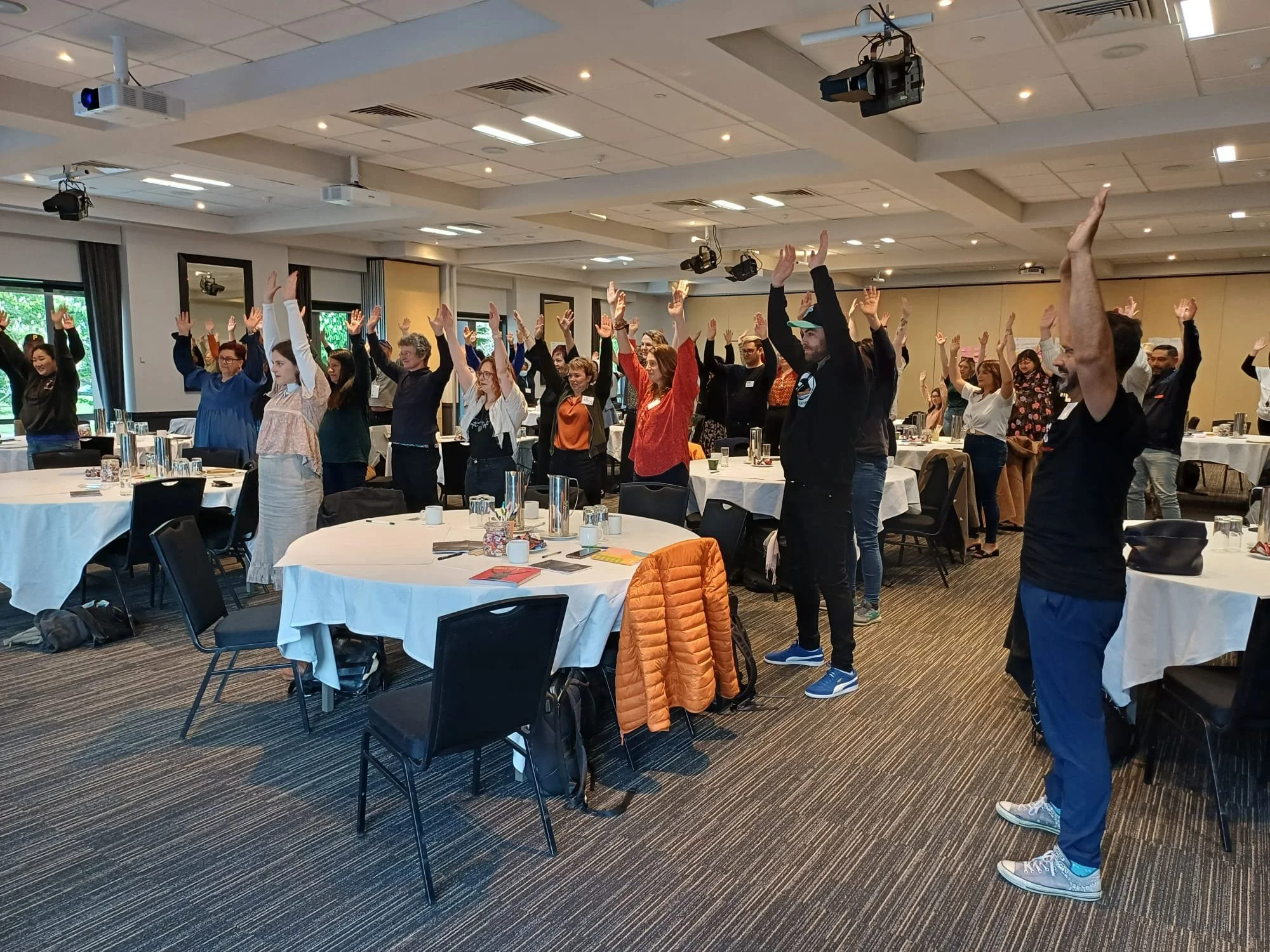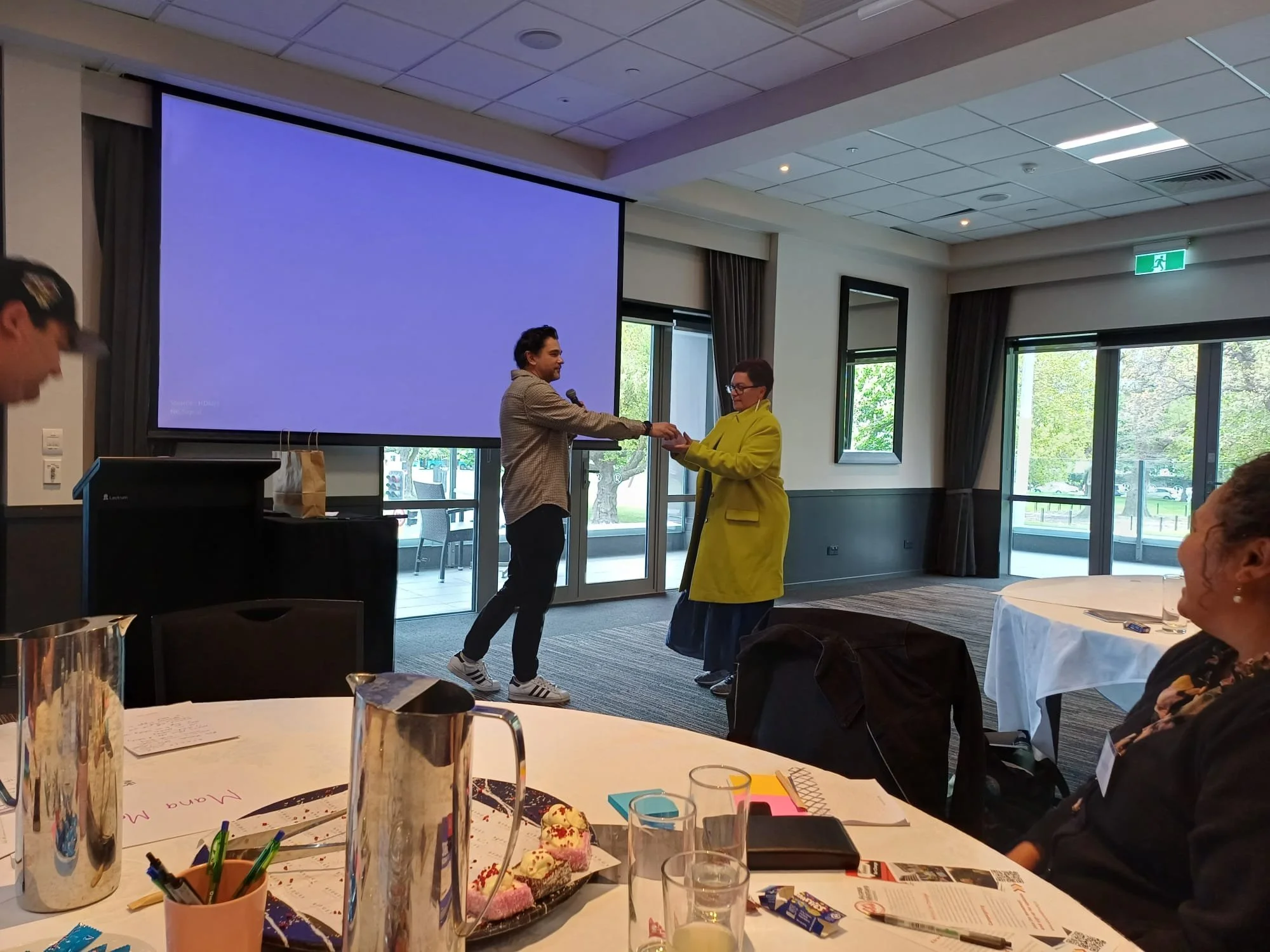Kaikōkiri Community Partners Hui - An Unconference for Connection, Courage, and Change
Toward the end of 2023, J R McKenzie Trust kaimahi noticed a high number of community organisation leaders leaving the sector. Not only did this include those serving as Chief Executives and General Managers, but also those who were their natural successors. At the February 2024 He Aromatawai face-to-face reflection sessions, the Trust facilitated some time to discuss this issue.
We heard from community leaders about increasing pressures causing burnout and isolation in the sector, especially from those who were both leading organisations and working on the frontline. What became very clear was that systems change and advancing equity is hard work, could be lonely at times, and the wellbeing of these leaders was being negatively affected.
The comments made by this group reflected recommendations from the Trust’s 2023 Insights and Learning report which focused on funding wellbeing restoration, supervision, and systems change-focused leadership development for changemakers. Our kaimahi asked what the Trust could do to ensure leaders felt supported. Ngā kaikōkiri mentioned a desire for support to step away from their day-to-day operations and spend time with other leaders from organisations that undertake similar mahi so that they could learn others and form supportive networks.
Knowing that the Todd Foundation had historically brought the leadership of groups it funds together to share, learn, and connect, Matthew McCracken (Grants, Partnerships and Relationships Manager – J R McKenzie Trust) began talking to Helen Andersen, then Programme and Relationships Lead – Todd Foundation (now General Manager – Volunteer Wellington), to see if there was an appetite to partner on bringing leaders together.
With both funders recognising the value in a collaborative approach to meet the needs of community leaders, it was decided that He Aromatawai attendees and groups the Todd Foundation were interested in hearing from should be surveyed, so that they could vocalise what support would be useful.
What resulted was a two-day hui involving 67 leaders from 36 community organisations assembling in Christchurch in October 2024. Attendees were approximately one-third J R McKenzie Trust-funded, one-third Todd Foundation-funded, and one-third were co-funded by both. The location was an intentional decision as it allowed the mainly Auckland- or Wellington-based leaders to completely step away from their lives for a short time.
Daisy Lavea Timo from Cross-Polynate was tasked with both facilitating the hui and working with a steering group comprising community leaders to co-design the content and agenda. Through this group, we heard a desire to ensure the hui wasn’t simply another conference that didn’t add value to their work and wasn’t nourishing their leadership. Settling on an ‘unconference’ style that allowed for the knowledge and expertise of attendees to be shared in a way that also created networking opportunities was clearly important. That meant ensuring there was space for people to connect meaningfully, and acknowledging some leaders just needed time away from the relentless day-to-day to be with others facing similar challenges.
The outcome was two days that offered a mix of small and large group discussions that examined topics such as the legacies have informed leaders and their mahi, the big issues facing communities and new ideas to make a difference, real stories illustrating effective leadership in action, and acknowledgement of what each person brings to their organisation’s kaupapa.
The sole presentation, focused on practical leadership tools and how leaders can deal with challenges they face, was delivered by Leadership Lab. Following the presentation, small group discussions helped leaders to discuss some of the challenges they face and draw knowledge from the collective wisdom of other leaders.
There was also plenty of time to connect with each other and the whenua, with downtime including a guided walking tour featuring Christchurch rebuild locations that had significant input by Ngāi Tahu, a relaxed restaurant dinner, and a small movement class to island beats delivered by Vui Suli Tuitaupe from Moana Vā. These ‘unconference’ elements provided time and opportunity for attendees to connect in an informal manner, allowing them to get to know each other and their mahi, and providing more opportunities to share and learn.
A key outcome from the connections made was the establishment of various systems change-focused network groups. As community leaders discussed what tools and frameworks were being used across various mahi, they saw the need to ensure they remained connected after the event, so these groups naturally germinated and continue to operate.
Feedback from the two-day hui included:
“Key takeaways were the connection and networking opportunities, collaboration and hearing others’ perspectives, the solidarity of the hui and the workshop, and kōrero on common topics and issues we are all facing.”
“I came away feeling very inspired with new ideas and renewed energy for the tasks at hand and moving into the future.”
“[We] really appreciated stepping away from our day to day mahi to reflect on where our changing leadership is at and our mission ahead over 2025 when we gain momentum on the next transitional phase of our succession plan.”
The two-day hui allowed the community leaders to scrutinise the truth of working towards systems change, acknowledge the strength needed to lead this mahi, and agree that opportunities promoting connection and partnership are vital. Community leaders offered coalface insights into the barriers faced, the strengths within their communities, and their aspirations for a socially just and inclusive Aotearoa New Zealand. A favourite piece of feedback received was the simple statement “I felt seen” which encapsulated the goal of this kaupapa perfectly.




